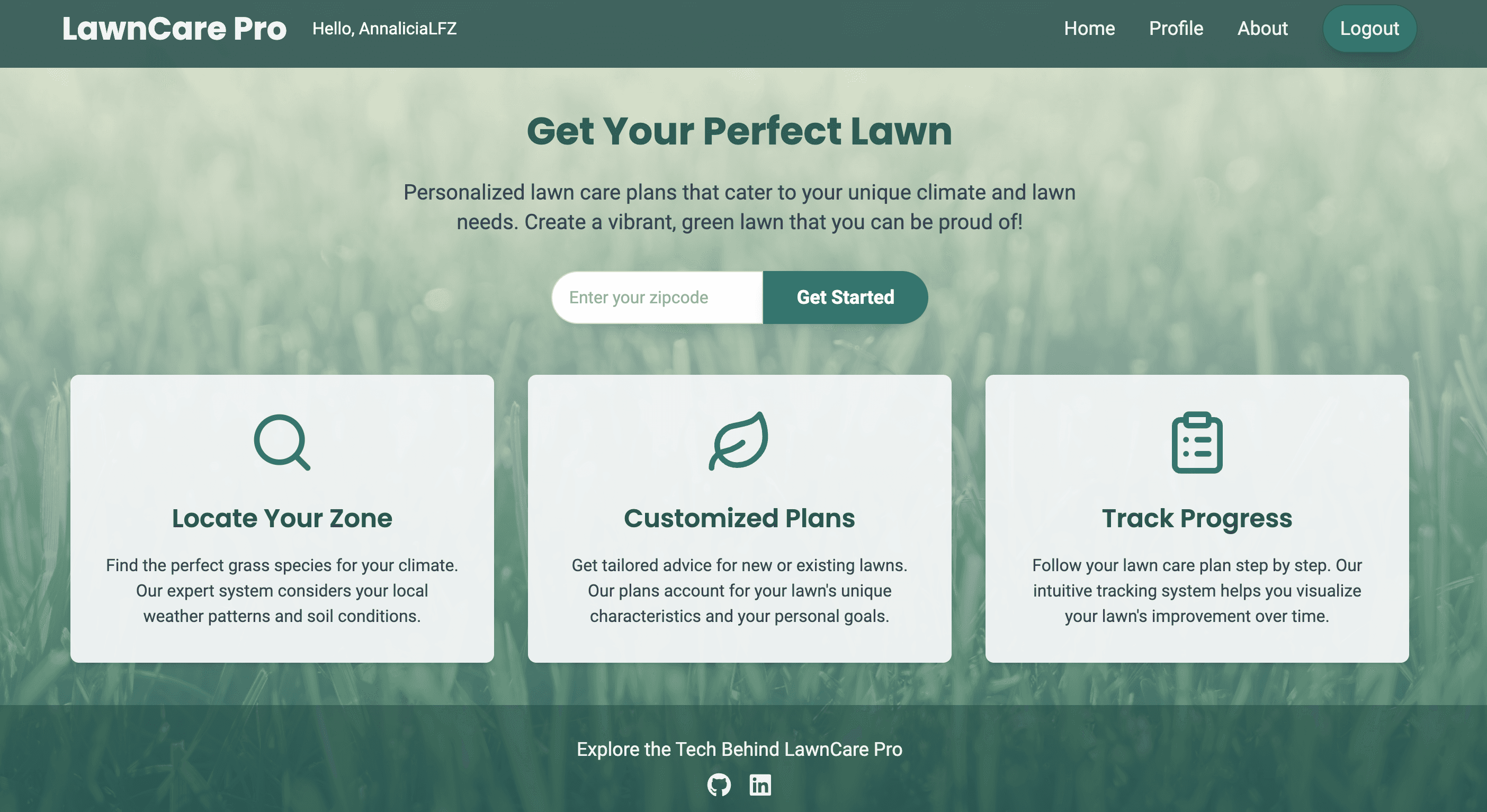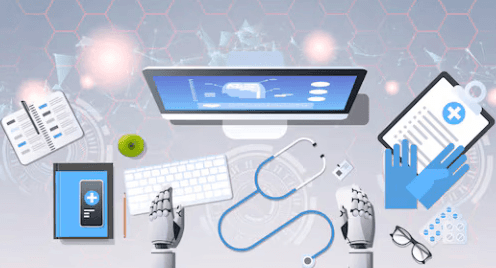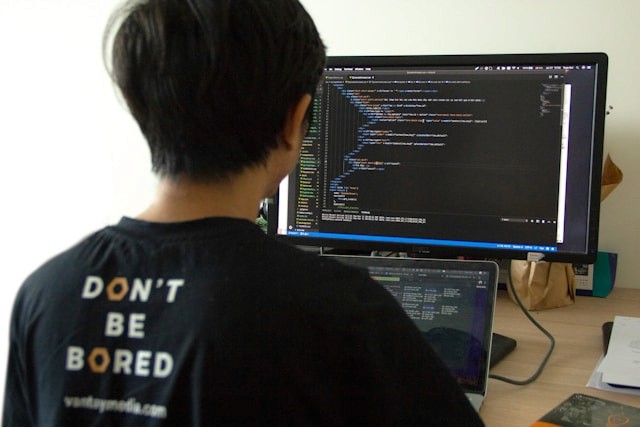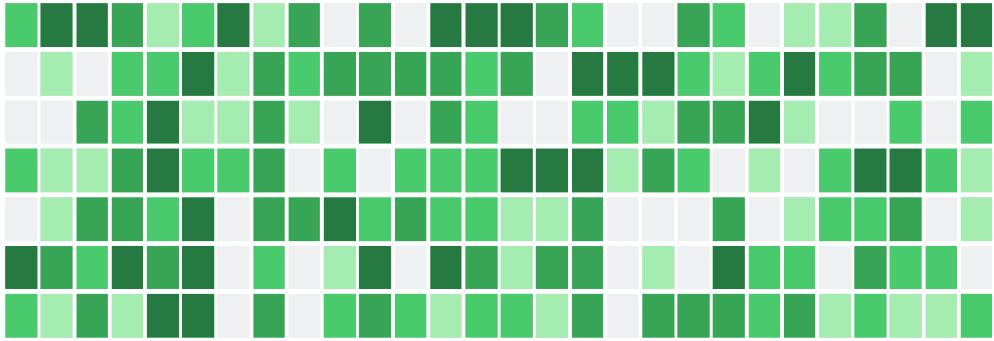Software Engineering Projects: 7 Ways to Brainstorm Ideas for Your Next Project
Completing a new project is a great way for software developers to practice their coding skills, add to their portfolio, and improve their resumes. It also helps gain practical experience, build confidence, and demonstrate problem-solving and technical ability to potential employers.
While there is so much value in building a new software engineering project, brainstorming your next project can be a challenge and sometimes a headache all on its own. At LearningFuze, we’re regularly coaching our software engineering bootcamp students through new projects and skills, so we’ve learned how to come up with great project ideas.
7 Great Ways To Come Up With Software Engineering Projects in 2025
Here are 7 prompts to reflect on to help you choose your next software engineering project with ease:
1. Solve a Personal Problem With Your Project
Start by asking questions like these:
What are some challenges you’ve encountered in your daily life or at work?
Are there any recurring challenges someone you know talks about?
What kind of tool, app, or website could you build to improve those problems?
To take this to the next level, you could also reach out to local non-profits or small businesses — organizations that you know cannot afford a software development team — and ask them what problems they wish they could solve if they could work with a software engineer.
Here's a recent example from one of our web development bootcamp graduates, Jody Clark, who built a web-based lawn care application for those who are growing new grass or trying to improve their existing lawn. The app generates a step-by-step plan of action to meet those goals.
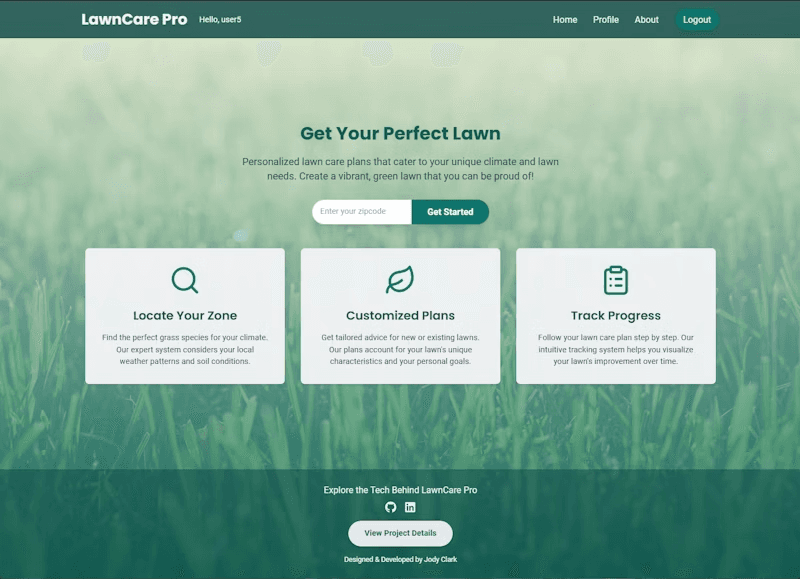
Alternatively, ask you family and friends about things that are frustrating for them. What complaints do they have about the software they use? Where do they encounter challenges at work or school?
2. Explore Your Hobbies
What do you like to do aside from work? Use your hobbies or interests as inspiration for your next coding project.
For example:
If you know how to crochet, create a site to write down patterns easily.
If you're into cooking, develop a recipe-sharing app.
If you love to travel, build a platform that makes it easy to plan your itinerary.
Another one of our students, graduate Nader M., built a full-stack web application for social film enthusiasts who want to find and network with other film fans with similar tastes.
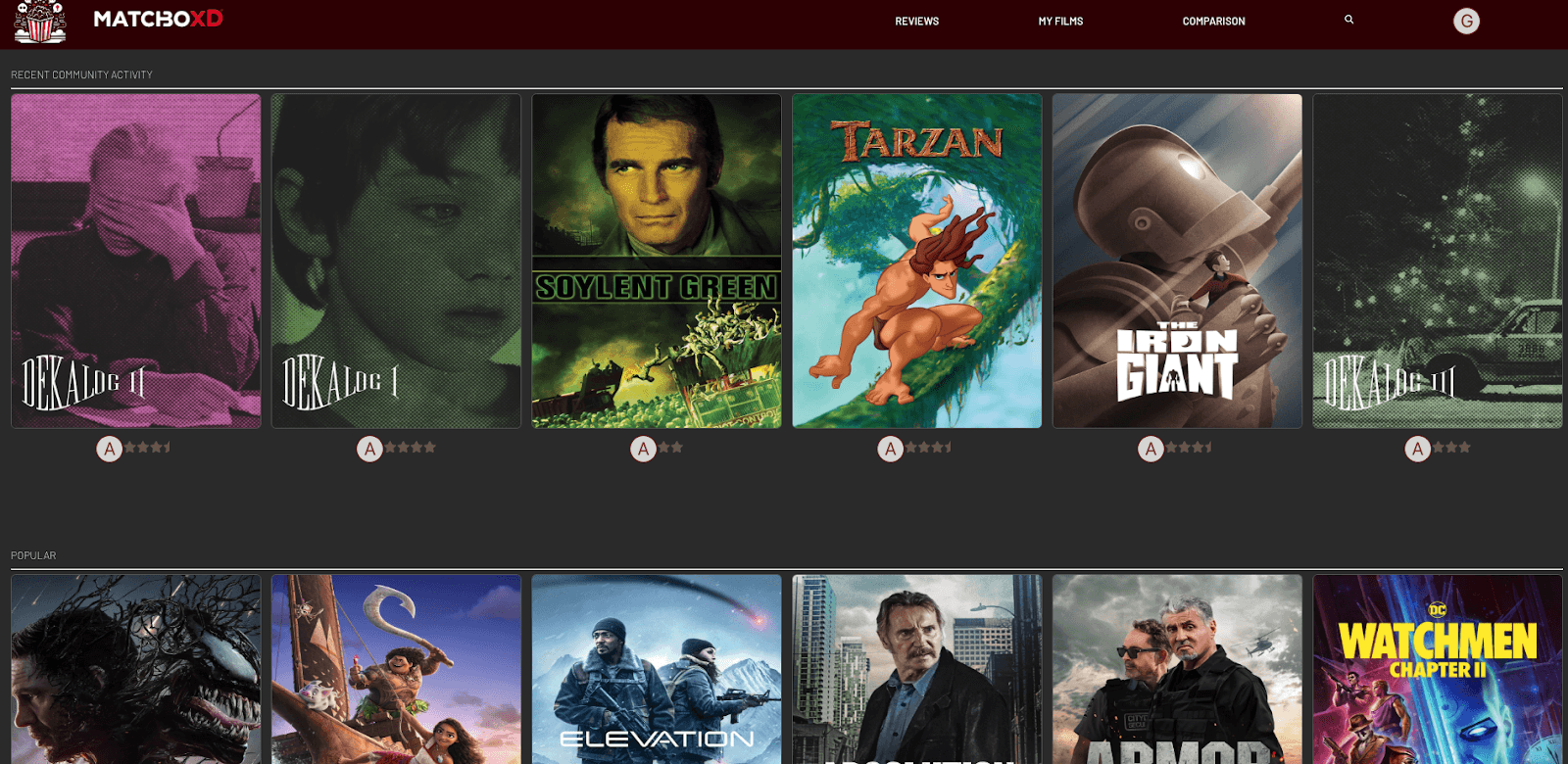
3. Analyze Gaps in the Market
Are there any industries, local businesses, or communities you’re interested in that might have unmet needs? What could you build them to improve their productivity?
As a general rule of thumb, always keep in mind who the user is when you’re starting a new software engineering project. Without a clear understanding of your intended user, you can’t design a product that is intuitive and helpful.
For example, recent LearningFuze graduate Cody Epstein built this full-stack application as a software project. It’s designed to help patients manage their medications, so Cody prioritized the patient experience. If he’d been building it to help pharmacists or insurers, the project would look significantly different.
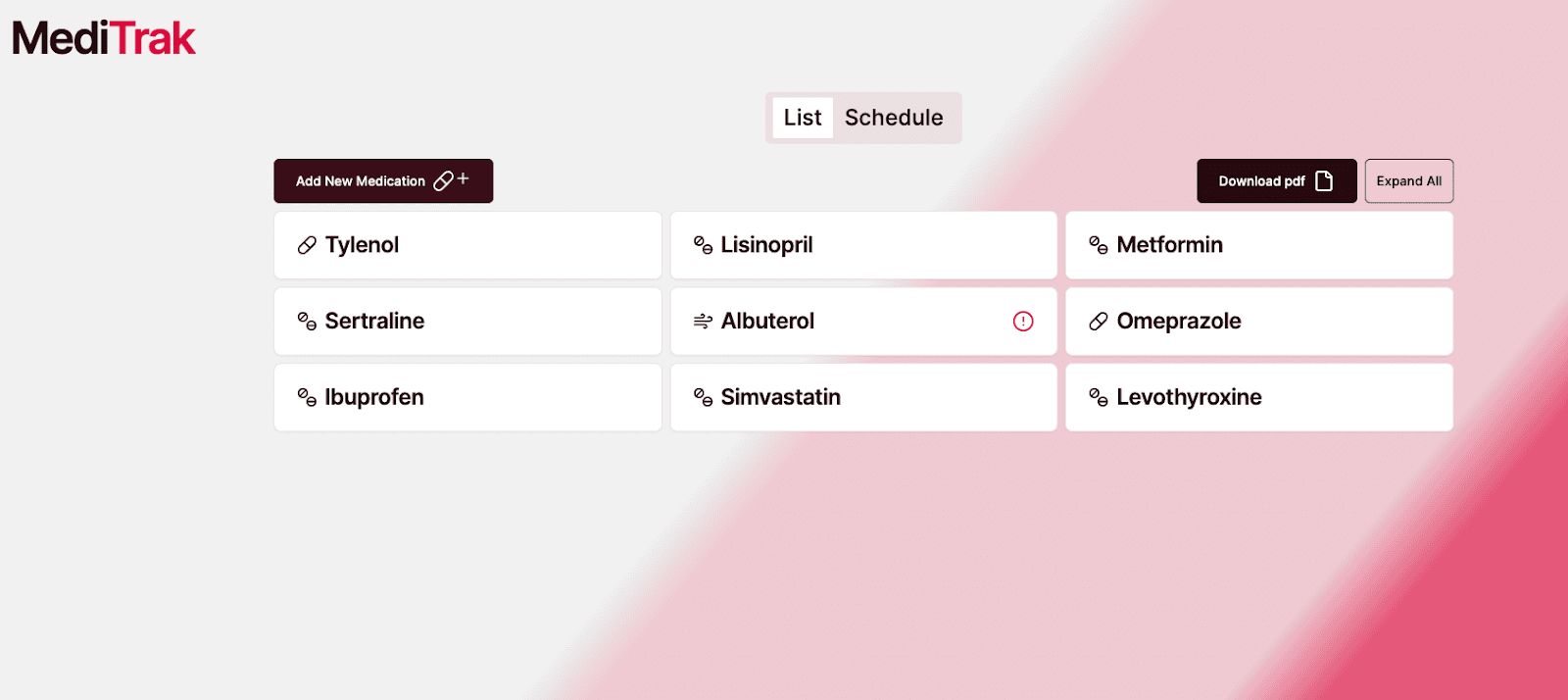
4. Improve Existing Tools
What are some apps, websites, or tools you use regularly that have, in your opinion, design or user flaws? Could you build a better version or add features they lack?
Before you kick off your project, use programs like Figma to help you redesign the platform or app! Figma has great beginner tutorials that can help you build prototypes and wireframes to imagine what shape your new project might take.
5. Combine Technologies
Merge two concepts or technologies into one project. For example, a fitness tracker integrated with mental health reminders or a recipe book with a calorie tracker.
This approach is really common. Some examples include:
Goodreads combines a digital bookshelf and social networking
Strava combines fitness tracking, social media, and gamification
Instacart has expanded from just grocery delivery to helping users with meal planning and recipe selection
6. Participate in Hackathons or Idea Jams
Collaborate with others in quick brainstorming sessions or competitions to spark new software project ideas. These events often lead to innovative project ideas and will help you churn out mini-projects in very short amounts of time.
You can find hackathon opportunities online. If you participate in hackathons, it’s also a great idea to include them on your LinkedIn profile to highlight skills used and the projects you create.
7. Gamify a Process
There are plenty of recurring tasks you have to do every day, week, or month.
What if you could take a mundane task and make it engaging through gamification?
For example, habit tracking with rewards or learning new skills through interactive gamesDuolingo is a great example of this (and it has over 100M monthly active users).
Here’s another example of a software engineer project (built by a LearningFuze alumni) that allows users to track their habits and visually see when they are meeting their goals.
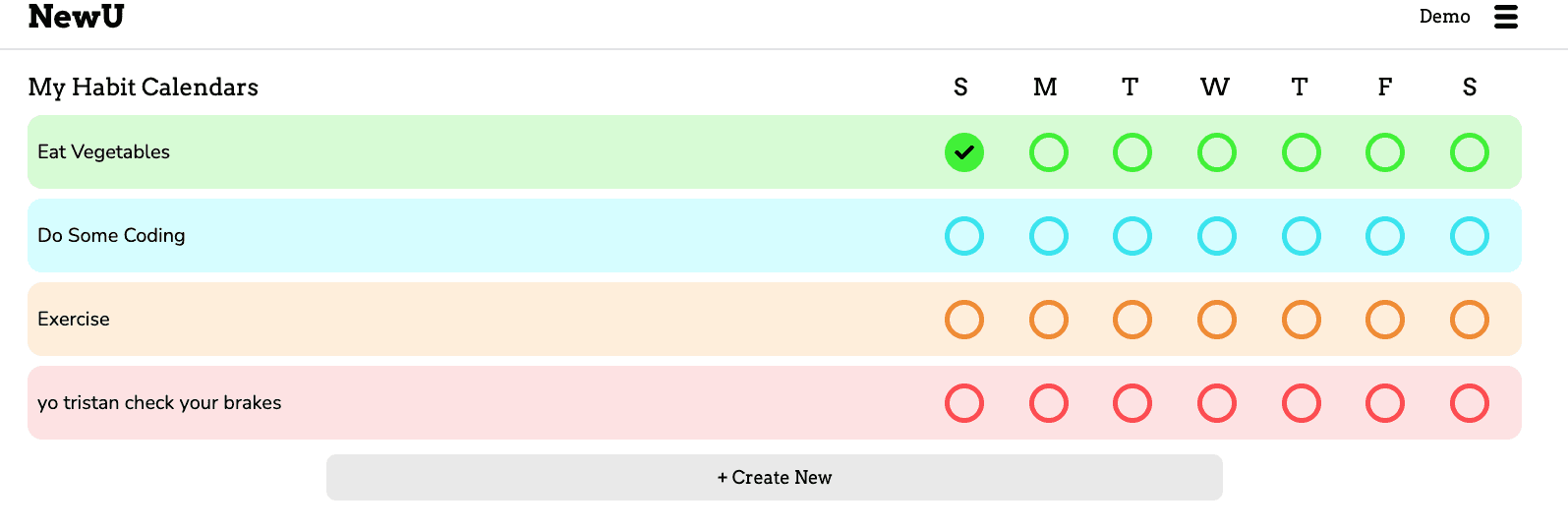
What Programming Language Should You Write Your Project in?
The good news is there isn’t really a wrong answer to this question.
The right programming language depends on what you’re hoping to accomplish with your next software engineering project.
Are you looking to learn a new language? Solidify your skills? Add to your portfolio? Pivot into a niche in a certain industry?
The answers to these questions will help you decide on the right programming language.
If you’re not sure where to start or are new to learning software engineering, we recommend starting out with building projects in the languages that are most popular in the software industry, such as JavaScript and Python. This increases your chances of building skills that will be transferable in the software developer job market.
As of 2024, JavaScript is the #1 most popular language for professional software developers. It’s held the top spot for the last few years, according to the 2024 StackOverflow Developer Survey Results.
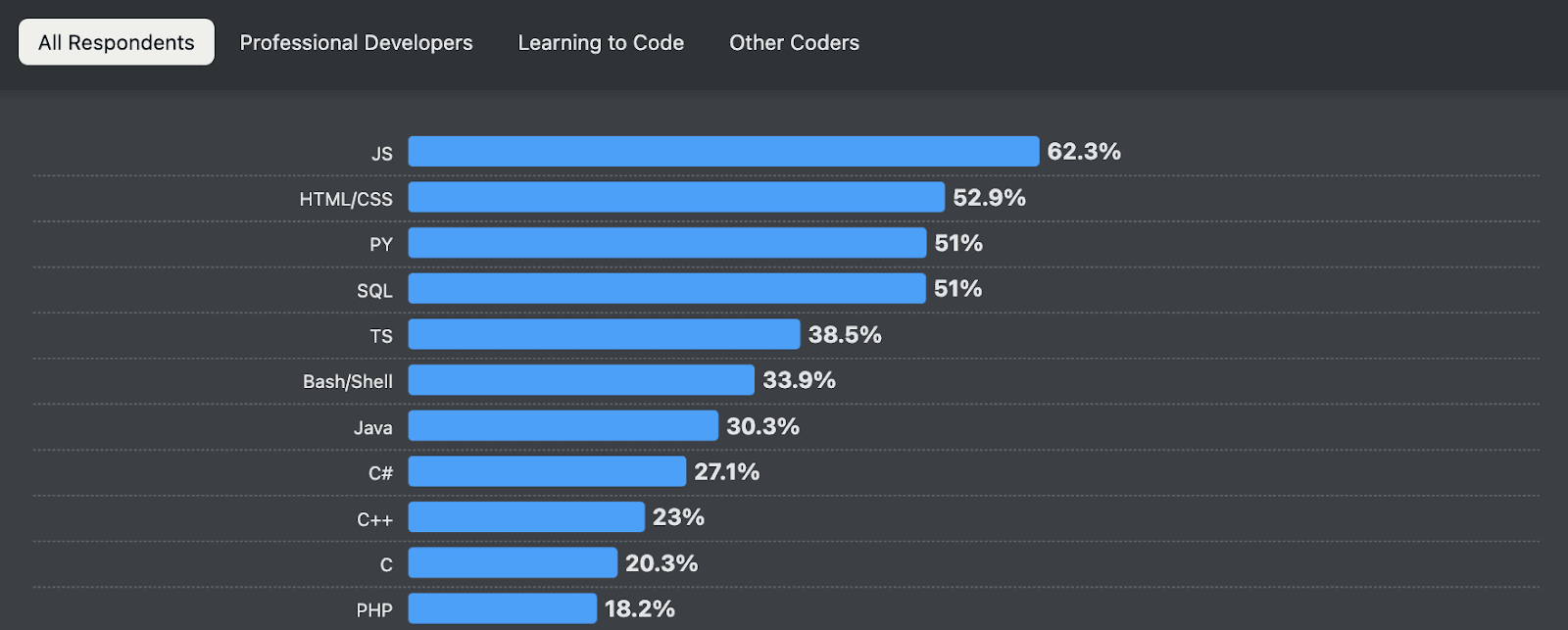
Source: 2024 StackOverflow Developer Survey
3 Key Skills That You’ll Build by Doing Software Engineering Projects
Beyond just enhancing your technical practice, working on a project also builds a number of other skills that are crucial to becoming the best software developer possible.
Here are 3 key skills your first software engineering project build can help develop:
1. Organization and Time Management
Software engineering projects require pre-planning and prioritization to ensure you can actually complete your project (and that it works as intended).
Organization is key to this, and it’s a skill that companies are eager to find in new software engineers. The truth is that you should not be writing any code for your project until after you have mapped out key details like the features, the data schema, and wireframes.
All of this helps you determine the right order in which to tackle the features.
With each software engineering project you take on, you will get better and better at creating successful project plans, figuring out how to estimate the time it will take you to complete tasks, and how to organize your workflow, and stay productive under constraints.
2. Debugging and Troubleshooting
As you build your project, you’ll inevitably encounter errors and unaccounted-for issues. Learning to debug and troubleshoot problems without getting overwhelmed strengthens your ability to fix issues efficiently.
When you are debugging an error or a glitch in your project, our Senior Instructional staffs’ top tip is to go slow and trace back the problem step by step. Rushing to make an edit in the code can lead to making the issue worse or creating new problems that do not solve the original bug.
Stopping regularly to make sure that the code you wrote works as intended will help you to make sure your project does not get too far along with issues baked in.
3. Version Control and Collaboration Tools
Even if the project you are working on is just a personal project that you are building for practice, we highly recommend using tools like Git and GitHub to manage your project. Doing this will allow you to practice good habits and industry standards in version control, branching, and merging, which are critical in professional software development.
Pick a Project and Get Started Today
Software is constantly evolving and improving. That means there’s really no ‘wrong’ software engineering project — the more you work on your programming skills, the better of a programmer you’ll become.
Still, the best possible project for you is one that aligns with your goals, your skills, and your career aspirations.
If you’re considering a career as a software engineer but you’re not sure where to start or whether it would be a good fit with you, we’d love to help. We’ve been teaching aspiring software engineers for a decade, and our small and dedicated team of instructors would love to help you take the next step in your career journey.
Book a 1:1 informational call today to learn more about our software engineering courses and how they can help you grow your skills and open up new career options.
